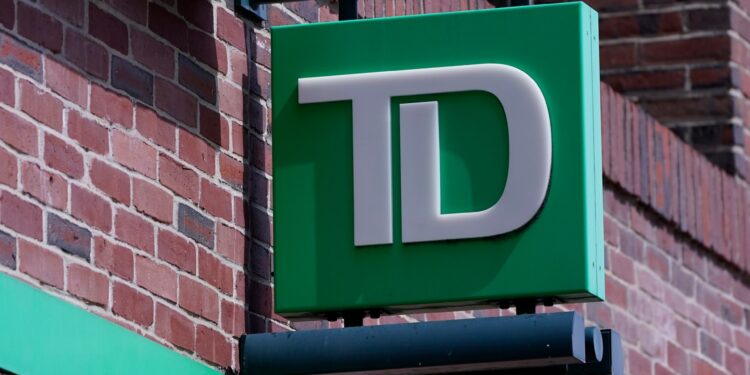Federal authorities began probing TD’s internal controls after agents discovered a Chinese criminal operation bribed employees and brought large bags of cash into branches to launder millions of dollars.
Two TD Bank units have pleaded guilty to United States criminal charges and agreed to pay $3bn in combined penalties to resolve federal government probes into money laundering, US authorities have said.
The plea deal includes imposition of an asset cap and other limitations to its business, authorities said on Thursday. The bank has pleaded guilty to conspiring to launder money and conspiring to fail to file accurate reports or maintain a compliant anti-money laundering programme, the US Department of Justice said.
The cap on its asset expansion in the US, imposed by the Office of the Comptroller of the Currency, is a rare step typically reserved for severe cases. It would deal a major blow to TD’s hopes to expand further in the US, which accounts for about a third of the bank’s income.
TD also agreed to pay $3bn in combined penalties to US banking regulators, the Justice Department and the Department of the Treasury’s Financial Crimes Enforcement Network.
The deal resolved investigations by the Justice Department, the Office of the Comptroller of the Currency and Treasury’s Financial Crimes Enforcement Network. It also included the imposition of independent monitoring.
An asset cap is “worst-case scenario” for TD, said Cormark Securities analyst Lemar Persaud, prior to the details of the plea deal being announced. The bank had already set aside $3bn for the fine.
Persaud drew a parallel with Wells Fargo, which has a $1.95 trillion asset cap in place following a fake accounts scandal, which has constrained its earnings. An asset cap would also constrain TD’s profits, but to a lesser extent than it did for Wells Fargo, he said.
The TD probe has led to “significant underperformance of the stock and, we believe, the retirement of the current CEO Bharat Masrani,” Persaud said.
TD is Canada’s second-biggest bank and the 10th-largest in the US. The lender first revealed it was responding to inquiries from regulators and law enforcement last year, just months after it terminated a $13bn acquisition of regional lender First Horizon.
Federal authorities began probing TD’s internal controls after agents discovered a Chinese criminal operation bribed employees and brought large bags of cash into branches to launder millions of dollars in fentanyl sales through TD branches in New York and New Jersey, a source confirmed.
TD has spent millions to strengthen its compliance programmes, fired dozens of staff at its US branches and named its Canadian personal banking head Ray Chun as its new CEO, distancing its new chief from the money laundering scandal.
CEO Masrani, who has been at the helm for nearly a decade and previously led its US operations, will retire next year. Masrani has said he takes full responsibility for the money laundering issues that have plagued the bank.






